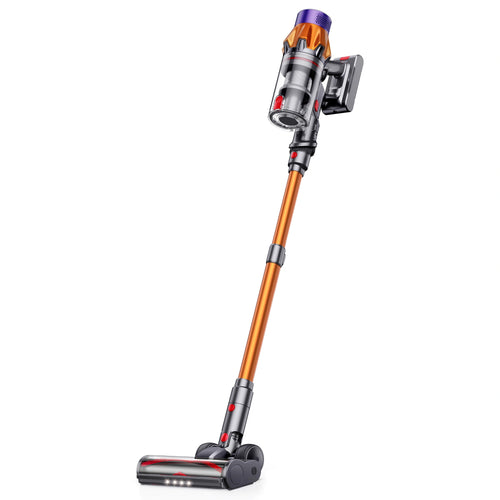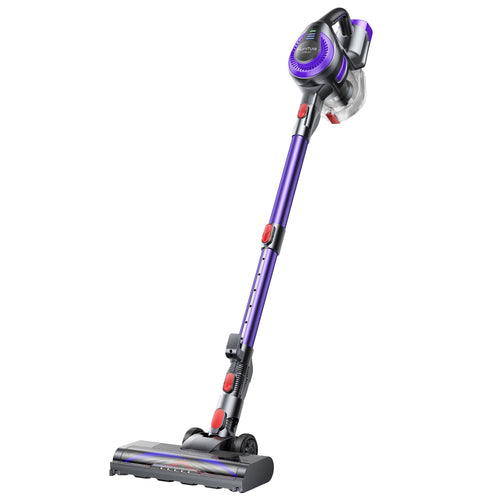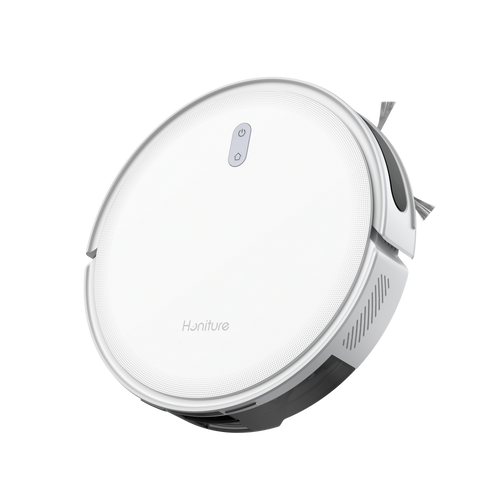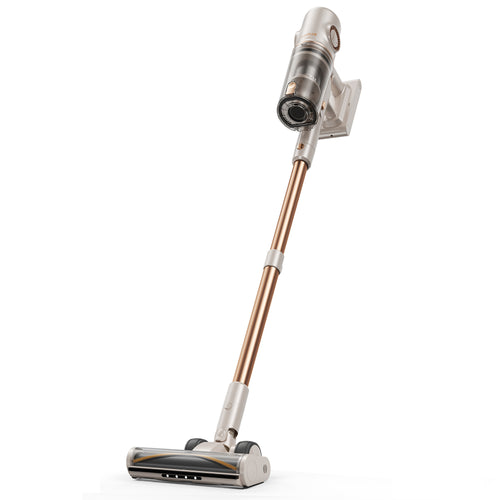Vacuum cleaners are not a universal tool: Don’t vacuum these things!
Vacuum cleaners have become an indispensable cleaning tool in modern homes and offices. Whether cordless, upright, or robotic vacuums, they all help us quickly remove dust, hair, and fine particles. However, not everything is suitable for vacuuming. If used improperly, certain debris can not only damage the vacuum cleaner, but also reduce its lifespan and even pose a safety hazard.
This article will provide a detailed explanation of substances that vacuum cleaners should not pick up and the potential consequences, helping you use them correctly and extend the life of your vacuum cleaner.
While vacuum cleaners are undoubtedly a powerful tool for modern household cleaning, they aren't omnipotent. Many people mistakenly believe they can handle all debris on the floor. However, if used incorrectly, they can not only fail to effectively clean, but can also cause irreversible damage to the vacuum cleaner itself and even pose a safety hazard.
Understanding the "don'ts" of vacuuming is key to extending its lifespan and ensuring effective cleaning. This article will delve into what debris shouldn't be vacuumed, and the serious consequences of ignoring these don'ts.

What debris cannot be cleaned with a vacuum cleaner?
Sharp debris: glass fragments, pebbles, coins, metal nails
These hard objects can clog the duct, damage the fan blades inside the vacuum cleaner, or even scratch the dust bin.
Rather than vacuuming, sweep up the larger debris first and then carefully dispose of it. This will leave behind tiny glass shards, which you can clean with a damp cloth, paper towels, dough, or bread.
Powders: gypsum powder, flour, cement dust, furnace ash, fire extinguisher powder, etc.
These extremely fine powders can easily penetrate the vacuum cleaner filter. When they enter the motor, they will wear out the internal parts like sandpaper, causing the motor to overheat and eventually burn out. In addition, they will seriously clog the filter, causing a sudden drop in suction power.
Wet food: milk, juice, wet rags, wet garbage, even freshly spilled damp coffee grounds
Wet garbage can clog the pipes, breed bacteria and mold, and emit unpleasant odors. Once liquid is sucked in, the water vapor will directly enter the motor, causing a short circuit or rust, which is almost a death sentence for the vacuum cleaner.
Hot or flammable items: unextinguished cigarette butts, matches, burning embers
The high-speed airflow and heat generated by the motor inside the vacuum cleaner are enough to ignite these hot items, easily causing a fire. Inhaling flammable powders or vapors (such as flour dust and volatile solvents) can also cause an explosion.

Ignoring taboos has a profound impact on vacuum cleaners
Reduced suction power and poor cleaning results
This is the most immediate symptom. When the filter becomes clogged with fine dust or the duct becomes blocked by wet debris, the vacuum cleaner's airflow is restricted, significantly reducing suction power. This means you'll spend more time cleaning, and the results will be significantly reduced.
Internal parts wear and shortened service life
Fine powders and sharp objects continuously wear and tear on the motor, like "torturing" the vacuum cleaner's internal parts. This wear is irreversible and will eventually lead to decreased performance, abnormal noises, and even complete failure.
Breeds bacteria and creates odors
Sucking in wet waste not only clogs pipes but also creates a breeding ground for bacteria and mold. These microorganisms are then re-dispersed into the air by the vacuum cleaner's exhaust, polluting the indoor environment and creating unpleasant odors.
Safety Hazards, Fire or Electric Shock Risk
This is the most serious consequence. Inhaling liquids can cause a short circuit in the motor and electric shock. Inhaling hot or flammable materials can cause an internal fire, turning a cleaning tool into a potential fire source.

How to avoid these problems? (Usage suggestions)
Distinguish between wet and dry waste: Regular vacuum cleaners are only suitable for cleaning dry dust. If you need to vacuum water or liquids, choose a wet/dry vacuum cleaner.
- Pre-clean bulky waste: Before using the vacuum cleaner, use a broom or paper towel to remove bulky solid or wet waste.
- Regularly check and clean the filter: It is recommended to clean the HEPA filter and dust container weekly to prevent a decrease in suction power.
- Choose a brush head specifically for hair: For households with pets or those with long hair, it is recommended to choose a model with an anti-tangle roller brush.
- Avoid inhaling harmful substances: For chemical powders or flammable materials, it is recommended to use specialized cleaning tools or consult a professional.
Conclusion: Proper Use Makes the Most of Your Vacuum
A vacuum cleaner is an appliance designed to remove dust and debris. Understanding its working principles and limitations, and following proper usage guidelines, are essential for ensuring efficient operation, a long lifespan, and overall household safety.
The next time you see a mess on the floor, think, "Is this suitable for vacuuming?" Perhaps picking up a broom, mop, or paper towels is a smarter and safer option.
FAQs
1. Why can't my vacuum cleaner vacuum up water?
Most household vacuum cleaners are designed as dry cleaning tools, and their motors and circuits are not waterproof. If liquid gets in, it could cause a short circuit, burn out the motor, or even pose a risk of electric shock. If you need to vacuum up water, we recommend purchasing a wet/dry vacuum cleaner.
2. Can I use my vacuum cleaner to vacuum up broken glass?
Not recommended. Glass fragments can scratch the vacuum cleaner duct, dust bin, or even damage the fan blades. Use a broom and dustpan before cleaning up broken glass to avoid damaging the machine.
3. Can my vacuum cleaner handle pet hair?
Yes, but be careful. Regular brush heads easily become tangled with hair, which can cause the brush head to stagnate over time. We recommend choosing a pet-specific brush head with an anti-tangle design and regularly cleaning the brush head and filter.
4. Why can't I vacuum up ash or fine powder?
Ultrafine dust, such as fireplace ash, cigarette ash, and plaster dust, can pass through the filter and enter the motor, causing overheating, blockage, and shortened motor life. To handle this type of dust, use specialized equipment with a high-efficiency HEPA filter system.
5. Can food crumbs be vacuumed?
Dry food crumbs (such as cracker crumbs and bread crumbs) can be vacuumed, but greasy or wet food is not suitable, as it can cause sticking, mold, and odor. It's recommended to first clean with a paper towel and then vacuum for a second cleaning.
































